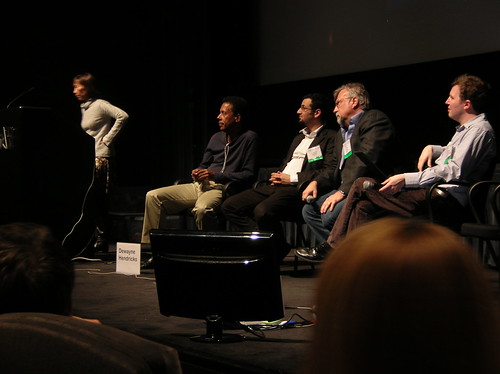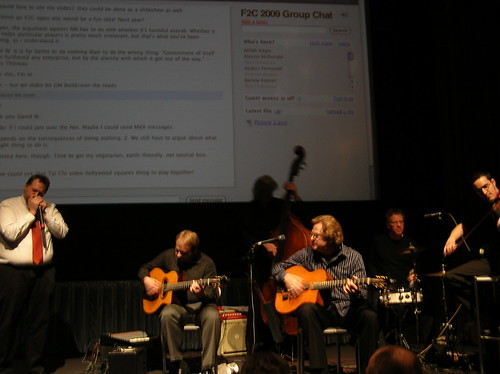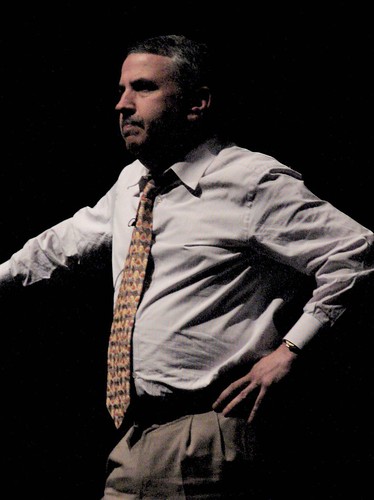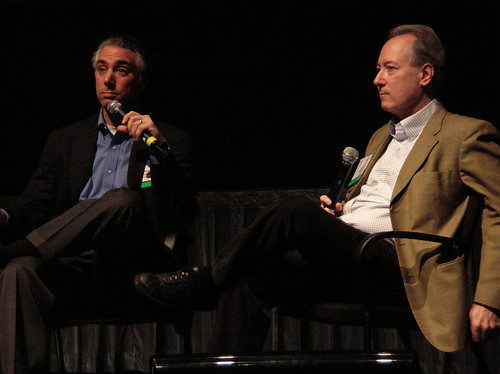I began our Thursday class with prayers of thanks and intercession for John Hope Franklin and his legacy. Since Franklin was a Duke hero, local public radio listeners have been immersed in reports about his admirable life and career. In the midst of all this attention to a scholar’s persistent, ultimately successful efforts to make the records of African-American life available as formal “history,” it dawned on me that one strong element in my own pain and anxiety over the past few months has been my whiteness. Not, I mean, that I’ve been all broke up about being white; like almost all white folk, I rarely have to notice my race. The aspect of whiteness that has afflicted me recently is the proclivity to believe that deserving something bears a reliable relation to attaining it.
Dominant groups — especially, in this culture, white guys — tend to assume that deserving something should have a causal relation to attaining it because, on the whole, that works out better for dominant groups than for other folks. The people who don’t have a full share of social dominance frequently learn, harshly, that “deserving” a job, or a bonus, or justice, or whatever, doesn’t mean that they have much of a shot at what they deserve. White guys (or representatives of other dominant groups, or dominant groups in non-dominant subgroups, whatever) still enjoy/suffer the illusion that the alchemical blend of merit and social dominance (variously constituted) entail a binding claim on positive outcomes. Ooops — that was me. Is me.
As a social observer and as a theologian, I assert that “deserving” won’t bear all the weight that white guys want it to — and their, our, reliance on “deserving” falsifies the theological truth that we live by grace, through and through. The only kind of deserving that matters, in the end, is a deserving that will be adjudicated by an authority and a wisdom far greater than those that search committees, imperious guests at the Cosmos Club, or the recognition of our peers can offer.
Do we by this teaching annul the importance of “deserving”? By no means! In the first place, we will indeed be judged for the timbre of our lives and the quality of our offering to the world, our legacy. (You need not believe in a big, dramatic Final Judgment in order to assent to this premise; history, our children, our customers, clients, employers, the users of the products we build (here speaking as a fountain pen restorer), as citizens, as friends, as George Baileys or Henry Potters, our lives matter to a vast network of people and systems beyond our awareness.) We will be judged, and all we can do before the time of our judgment is to strive for the best, with our fullest capacities — regardless of whether we see the temporal outcomes we prefer.
Secondly, though, if we permit the contingency of “merit” receiving recognition to damp our diligence in striving, we give hostages to the capricious powers that already stack the odds against merit and desert. The dominant powers can pick on any sign of laxity, of half-heartedness, as a justification for their own laxity and unconcern (all the more culpable in dominant groups, since of those to whom much has been given, much will be expected). The flaws of “people like us” are understandable and excusable; the flaws of “those people” indicate characteriological defects that make them unreliable, inadequate, partisan, unprepared, presumptuous, and so on.
But third — and this realization cracked something open in my heart when I recognized it — I believe with every fiber of my corporeal being, every moeity of my spirit, that striving is the right thing to do, regardless. Indeed, when recognition and reward seem least evident, all the more I need to persist in advocating the truth as I have been given to understand it. The literary characters who resonate with force that overmasters my conscious reasonableness are the chivalrous figures who live by honor and principle, whose witness to their vision of how things should be takes precedence over practicalities and appearances. Tilting at windmills, entering the lists as The Disinherited, over-romantic as I know it all to be, these prevail in my heart. As much worldly-wisdom as I have learned, my soul stirs at the testimony of faithful persistence in the face of resistance, even and especially when that resistance is to some extent generated and perpetuated by the persistence itself.
And when I stand before God
and my salute sweeps the blue threshold,
One thing remains uncreased, unstained,
And that is… My panache.



